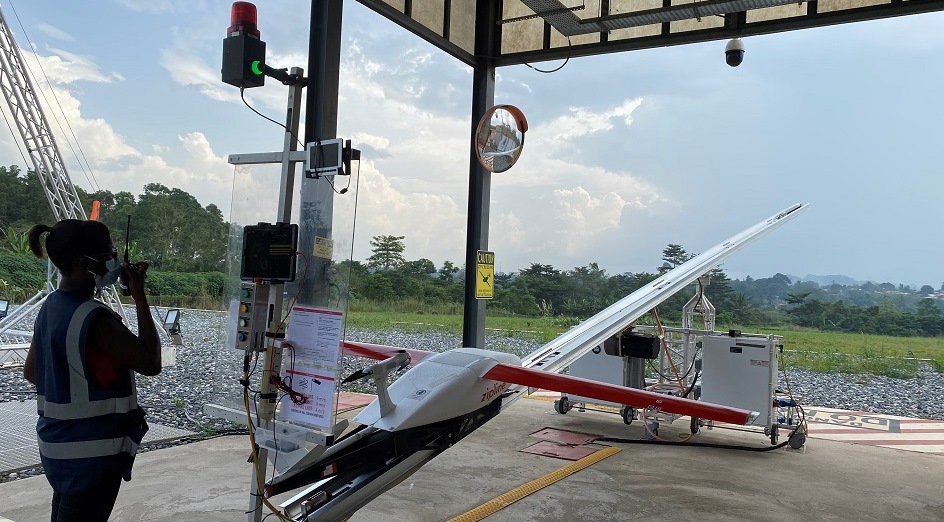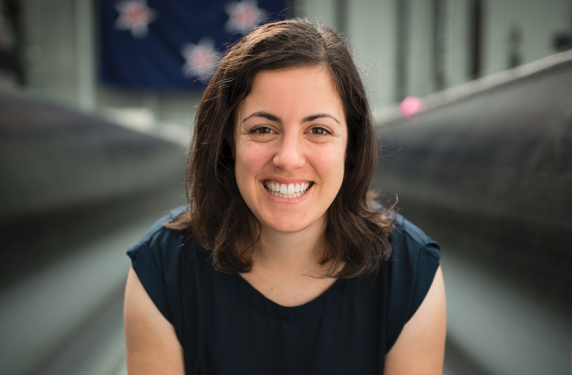Naomi Altman (BSc & BE ’13) is the Head of Electrical Engineering and Head of Test Engineering at Zipline, a tech company that aims to provide every human with instant access to vital medical supplies by building the world’s fastest and most reliable delivery drone and the largest autonomous logistics network.
Zipline is the first autonomous drone company operating at a national scale, delivering life-saving blood supplies to 22 million people in Ghana and Rwanda. Earlier this year, Zipline signed a deal with Nigeria’s Kaduna State allowing the drone delivery of COVID-19 vaccines, with end-to-end cold chain distribution capability. In the United States, Zipline’s drones have been conducting contactless distribution of personal protective equipment and critical medical supplies to frontline medical teams.
Before Zipline, Naomi led the Avionics team at Rocket Lab, a satellite launch service and the first private company in the southern hemisphere to reach space.
Tell us about your journey from UWA student to working in the space industry.
My career choices weren’t a linear series of events. When I graduated from UWA, I knew I wanted to work as an engineer but in a creative capacity. I didn’t know what industry or what job, just that I wanted to develop new technologies. I found Rocket Lab (a satellite launch service created in New Zealand) when it was small and they took a chance on me. I didn’t seek out space or aerospace. In general, I have always just made the decisions that were right for me at the time.
What attracted you to Zipline?
Zipline’s goal is to transform healthcare systems by providing instant access to vital medical supplies to every human on Earth. Zipline is known for delivering blood supplies, especially in emergencies, but we also deliver vaccines and medicines, and do re-supply runs to hospitals and clinics. When I had a chance to visit the health clinics that are served by Zipline, I was able to see first-hand how transformative it was for them to have access to the medical products they needed to do their job.

Zipline operations in Ghana
What does a typical day look like for you?
I lead electrical engineering, test engineering, and powertrain engineering. Every day looks different – I might go deep on an electrical circuit issue, talk about a strategic roadmap for a new hardware product or coach a team member through a decision. One of the highlights is when I get to help someone achieve something they previously didn’t think they could do.
"I love when complex problems are answered through simple solutions, which can often be a low-tech solution. In engineering, it’s easy to make a complex solution but an elegant simple solution is what differentiates good from great."
Naomi Altman
What have you learned about leadership?
I’ve learned the most through people challenges: collective problem solving is hard. You can take the 10 smartest people in the world and that doesn’t mean they’re going to work well as a team and produce better outputs. As a people manager, I try to make sure that my entire team is able to keep adapting to new challenges.
I’ve learned that an important part of my job is to explicitly communicate expectations, especially if they’ve changed or increased. I try to get to know the people on my team well enough to know how to help them adapt to changes so they can still perform at their best.
Why do you love engineering?
I love when complex problems are answered through simple solutions, which can often be a low-tech solution. In engineering, it’s easy to make a complex solution but an elegant simple solution is what differentiates good from great.
I also love failure analysis. At Rocket Lab, when something broke you would sometimes have limited flight data, so it would take detective work to put the pieces together and figure out what went wrong. You have to keep looking at the data from different lenses until you crack it – when everything fits together it explains all the different things you observed.
My proudest technical accomplishment was at Rocket Lab. Last year, we had a launch anomaly where we lost the rocket and didn’t know why. I led the technical investigation. It was extremely hard because we had very little data to go on, but we were able to work out what had happened and were even able to re-create the issue. Two months later, we successfully re-launched the mission.
You moved to San Francisco in September last year. What has it been like living in the United States during the COVID-19 pandemic?
On a personal level, I’m really proud that I left a comfortable existence in New Zealand and came here with a lot of unknowns – how I would translate to a new culture, working in a new industry, and building a lot of relationships from the ground up.
COVID-19 has left deep scars for the US, but there have also been some very special moments. During the pandemic, you have to be selective about who you spend time with because each interaction brings risk. This means you end up spending time with people who you really want to see. Since moving to San Francisco I’ve found my A-Team.
Read the full issue of the Winter 2021 edition of Uniview. [PDF 3MB]

